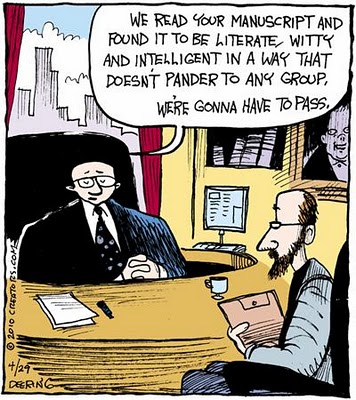R
Rick Hall
Guest
I've seen lots of advice that claims you shouldn't submit a manuscript until you've polished it to the point that you can think of no way to improve it. That has proven to be a high standard for me. There's ALWAYS something that can be improved. I'm reasonably sure I could continue editing my current manuscript for the rest of my life, and it would probably continue to experience incremental improvement the entire time.
After working with an editor for about six months, I gave the query process a shot. Of course, they provide zero feedback when they reject you, so you can't know if it's the query letter, the subject matter, the writing, or just the stomach acid of the agent.
Next, I worked with several friends who had experience with query letters. Then I tried again, with the same uninformative rejections.
Under the assumption that it's probably the writing style itself, I've gone back to the editing stage. I'm pretty sure this cycle will repeat itself indefinitely, and at some point I'll throw my hands in the air and self-publish, just so I can move on to one of the ten million new stories in my head.
I'm curious to hear if anyone has a more intelligent approach, since mine is admittedly bad.
After working with an editor for about six months, I gave the query process a shot. Of course, they provide zero feedback when they reject you, so you can't know if it's the query letter, the subject matter, the writing, or just the stomach acid of the agent.
Next, I worked with several friends who had experience with query letters. Then I tried again, with the same uninformative rejections.
Under the assumption that it's probably the writing style itself, I've gone back to the editing stage. I'm pretty sure this cycle will repeat itself indefinitely, and at some point I'll throw my hands in the air and self-publish, just so I can move on to one of the ten million new stories in my head.
I'm curious to hear if anyone has a more intelligent approach, since mine is admittedly bad.

